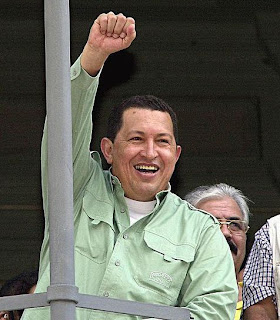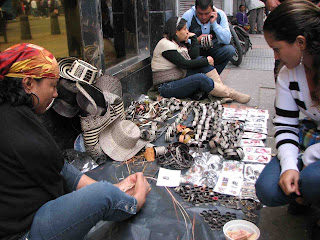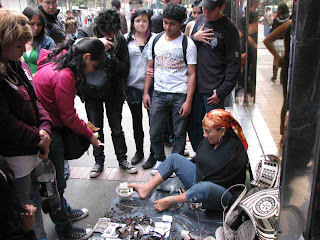 |
| Illegal drugs: Can they help solve the U.S. budget crisis? |
Here's a
modest proposal to make a
big dent in the United States' budget deficit, which has Washington heading toward default, while simultaneously reducing violence here in Colombia:
Decriminalize drugs.
 |
Spraying herbicides - and tax money -
over Colombian jungle. |
Numbers I've found vary, but the U.S. government budgets
about $17 billion per year on the War on Drugs. That includes Drug Enforcement Administration expenditures in the U.S. and abroad, money spent to erradicate drug crops here in Colombia and the rest of Latin America and in Asia, interdiction expenditures and others.
 |
| Out of jail and off of the public budget? |
Add to that another
$14 billion dollars saved on not incarcerating 561,526 inmates now in federal prisons for drug crimes, who cost the government $25,500 per federal prisoner per year. Of course, if not for drug laws, some of those people would be in prison for other crimes - but then lots of other people are imprisoned for other offenses which were motivated by the drug industry, and these crimes might be averted. In addition, policing, border control and court costs would also drop.
And, some of these freed inmates would likely get jobs and start
paying taxes instead of consuming them. Many young men would grow up with a father around instead of in prison, hopefully cutting the cycle of violence.
In addition, it's a good bet that the roughly
$114 billion year 2011 cost of the Afghan war would drop significantly, since the U.S.'s
Taliban enemies finance themselves to a large degree from the illegal heroin trade. In the same way, law enforcement costs in general would decline, as many urban areas would cease being quasi war zones. Property values would rise, increasing tax revenues.
Now add the income side of the balance sheet:
A 2008
Cato Institute analysis calculated that if the now-illegal drugs were taxed just as liquor and tobacco are now, they'd generate
$31 billion in federal taxes.
 |
| Federal spending: A way to shrink the pie? |
(The same Cato paper also found that
U.S. states spend $25 billion per year enforcing drug laws and would collect
$15 billion in taxes from drug legalization, for a total
positive revenue of $40 billion for state governments.)
Altogether, this means
at least $62 billion in positive revenue on the federal level.
To put those numbers into context, the U.S. federal government spends about
$100 billion annually on education, and the deficit is about $1 trillion. So, decriminalizing or legalizing drugs would be a big help for the U.S. budget crisis. $60 billion is also the gross domestic product of the nation of the oil-rich Qatar or the U.S. state of New Hampshire, so deregulating drugs would be like adding another state to the U.S. economy.
Naturally, this policy could also have
negative effects, in particular
increasing drug consumption - but the evidence for this in other cases, such as Portugal, is certainly mixed. And, billions of dollars of additional government revenue to go a long way to treating drug addiction and educating people about the dangers of drug use. In addition, decriminalization would
bring undoubted benefits, including lower levels of violence in the U.S. and in Latin America, reduced environmental impacts and less prison crowding.
Obviously, this scheme would require decriminalization or legalization by drug producing nations as well. But these changes would undoubtedly follow quickly once Washington D.C. changed its course.
There are, of course, additional ways to cut the deficit, including
reversing the Bush tax cuts for the rich and growing the economy.
But drug decriminalization is worth a try.
By Mike Ceaser, of
Bogotá Bike Tours

























































